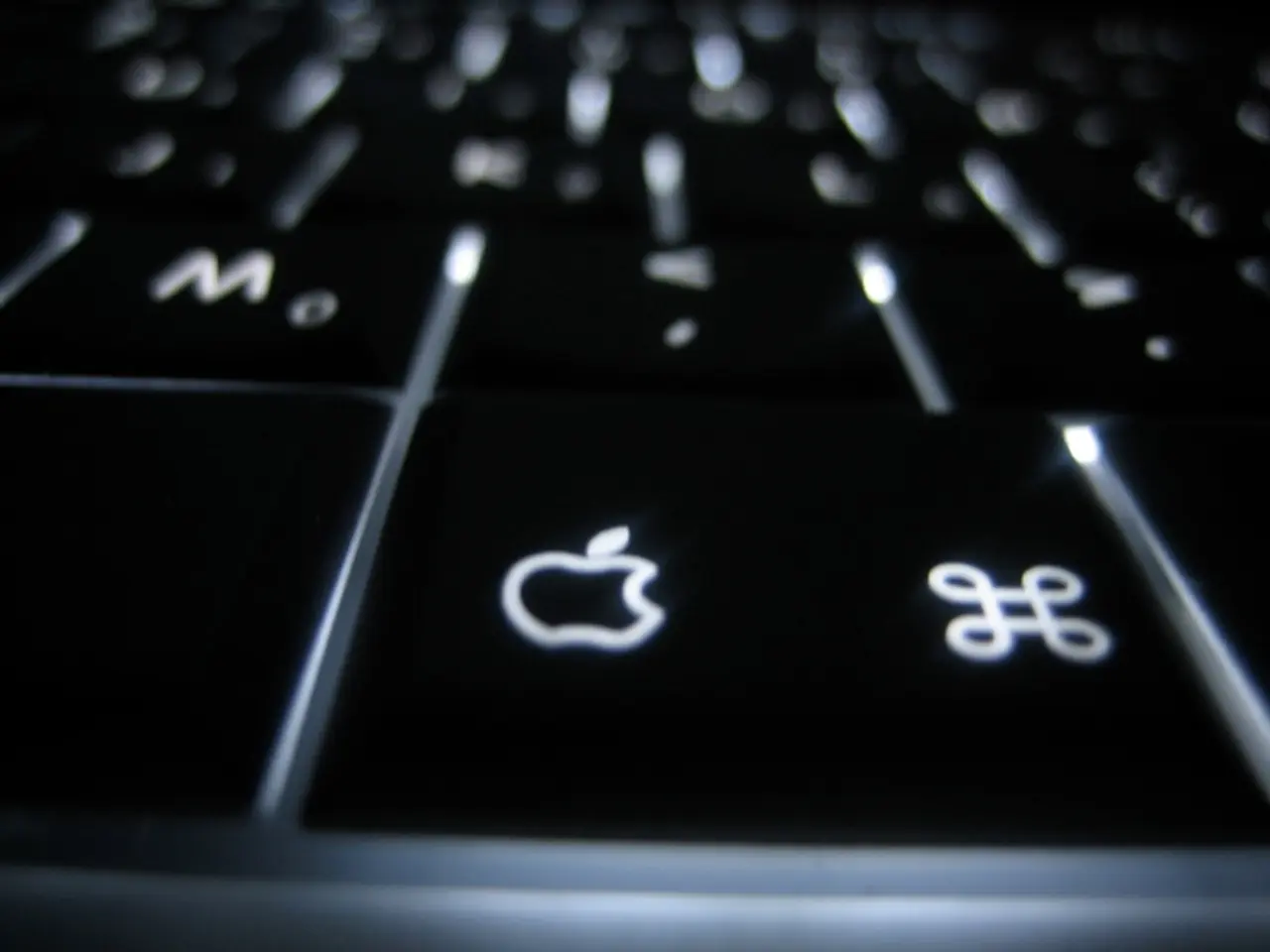Monumental Acquisition: Billions Spent on Retrieving Stocks via Purchase Operations
American and European companies are increasingly turning to share buyback programs to enhance shareholder value and boost earnings per share (EPS). According to Goldman Sachs, American top companies are expected to spend a staggering $1.07 trillion on buying their own shares in 2025.
Over the past 12 months, Shell, BP, Totalenergies, Alphabet, Meta, Nvidia, Microsoft, and Apple have collectively spent $40 billion and $120 billion, respectively, on share repurchases. Daimler Truck has already completed half of its planned €2 billion buyback, while SAP aims to invest up to €5 billion in its own shares by the end of 2025.
Share buybacks offer several benefits to investors. By reducing the total share capital, existing shareholders' percentage ownership naturally increases, giving them a larger claim on future profits. Additionally, buybacks can boost EPS, even if total earnings remain stable, often improving valuation metrics such as Return on Equity (ROE) and supporting share price appreciation.
Buybacks also signal management’s confidence in the company’s intrinsic value and can make shares more attractive to investors. Companies with strong cash flows but limited attractive reinvestment or acquisition opportunities may deploy capital via buybacks, balancing shareholder returns with strategic growth initiatives. Buybacks can sometimes offer shareholders a better return compared to dividends and allow companies to smooth out EPS volatility, appealing to both management and investors.
However, share buybacks are not without limitations and risks. Money spent on buybacks cannot be invested in R&D, debt reduction, acquisitions, or dividends, potentially limiting long-term growth. If motivated by immediate EPS boosts or executive compensation incentives, buybacks might not align with sustainable value creation. Companies must also consider macroeconomic conditions and sector-specific volatility when implementing buyback programs.
Not all companies can afford continuous buybacks, and only those with a reliable business model can sustain such programs. For instance, BASF's last buyback program was unsuccessful due to the Russian attack on Ukraine and rising energy prices. Mercedes-Benz Group is currently spending around €5 million per day on its own shares, but faces a challenge in financing its high DAX dividend.
In recent months, Apple has bought back $91 billion worth of its own shares, surpassing the trillion-dollar threshold for the first time with this instrument. Munich Re has taken more than 40% of its shares off the market since 2006 and, in May, Apple announced repurchases worth $110 billion. JP Morgan has also bought back $17 billion worth of its own shares over the past 12 months.
In contrast to dividends, buybacks are more valued in the U.S., with $711 billion expected in the S&P 500 next year. The S&P 500 has a lower current dividend yield than the DAX, but a higher yield from buybacks. For example, Munich Re paid an average of €163 per share for its buybacks, with the current share price around three times higher.
In conclusion, share buyback programs can provide significant benefits to investors by increasing EPS and ownership concentration, positively influencing market performance under normal conditions. However, the long-term impact depends on the company’s strategic rationale and the efficient use of capital.
- Daimler Truck and SAP are among the European companies that have been investing in share buyback programs, aiming to spend €2 billion and €5 billion, respectively, on buying their own shares by the end of 2025.
- Companies, like Apple, are increasing their investments in share buyback programs to enhance shareholder value, as seen in Apple's recent purchase of $91 billion worth of its own shares, surpassing the trillion-dollar threshold for the first time with this instrument.




